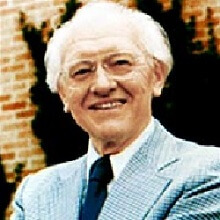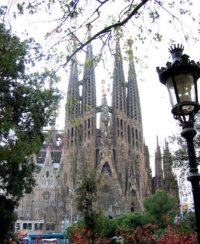On 21 August 1968, the so-called Prague Spring was put down with the occupation of Czechoslovakia by the troops of the Warsaw states. This was an attempt to reform political life in what was then Czechoslovakia. The US composer of Czech origin, Karel Husa, reacted to the invasion at the time with his “Music for Prague 1968”. He composed it in the summer and autumn of 1968 and dedicated it to the Czechoslovak capital. Later Husa also published a symphony orchestra version of it. After the political changes, he fulfilled a dream by performing this version with the Czech Philharmonic Orchestra in Prague in February 1990.

Karel Husa’s “Music for Prague 1968” is one of the composer’s most performed works. It belongs to the most played modern repertoire of renowned symphonic wind orchestras worldwide. Husa himself wrote an explanatory commentary on the composition, naming three main ideas that provide the inner coherence of the work. The first and most important idea is an old Hussite war song from the 15th century: “You warriors for God and God’s law” (Kdož jsú boží bojovníci). This had been a symbol of resistance and hope for the Czech nation for centuries and had also been used by many Czech composers. Bedřich Smetana, among others, used it in “My Fatherland”. The second idea is the sound of bells, which appears throughout the composition. This is reminiscent of the many church bells in Prague, the so-called city of a hundred towers. The last idea is a motif of three chords, which at first appears very softly and later in a powerful dynamic, Husa said.
Karel Husa was born in Prague on 7 August 1921. So this year marks his 100th birthday. He studied at the Prague Conservatory with Jaroslav Řídký and conducting with Metod Doležil and Pavel Dědeček from 1939 and at the Prague Music Academy, graduating in 1947. In 1947, he completed his studies in Paris at the Conservatoire de Paris and at the Ecole normale de musique. His teachers included Arthur Honegger as well as Nadia Boulanger for composition, André Cluytens, Eugène Bigot and Jean Fournet for conducting.
In 1954, he became professor of composition and music theory at Cornell University in Ithaca, New York State, where he remained until 1992. He also taught composition at Ithaca College. In 1974, he became an elected member of the Royal Belgian Academy of Fine Arts and Sciences. He has also received honorary doctorates from Coe College, the Cleveland Institute of Music, Ithaca College and Baldwin Wallace College, among others. He became a US citizen in 1959.
Both he personally and his works have received numerous prizes and awards. With his String Quartet No. 3 he received the well-known “Pulitzer Prize” in 1969 and with his Cello Concerto he received the “Grawemeyer Award” in 1993. In 1994 he was elected to the American Academy of Arts and Letters. (Source: Wikipedia)
Symphonic Wind Orchestra Works
Music for chamber, string or symphony orchestra
Works for different ensembles
Works for soloists






